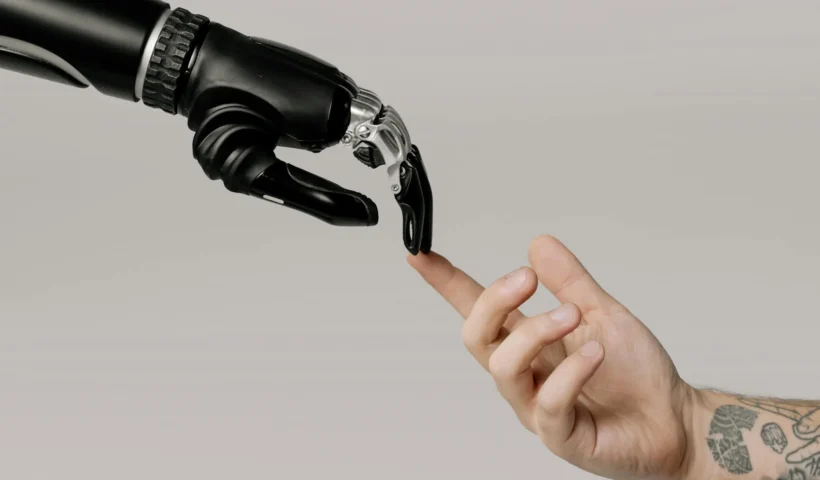Crunch culture is taking the gaming industry by storm. Crunch refers to a period where developers work compulsory overtime to reach a specific stage of game development. This overtime is often unpaid, leaving employees uncompensated for their extra hours of hard work. It also negatively impacts the quality of games and the health of game developers. Crunch culture is an unethical practice that must be banned in order to provide fair working conditions for all developers.
View More Ethical Challenges with Crunch CultureTag: Computer Science
How ChatGPT Can Combat Conspiracy Theories
Convincing a conspiracy theorist that they are wrong is usually a futile effort, but ChatGPT might have better luck. New research suggests that debating with a sympathetic chatbot may help pluck people who believe in conspiracy theories out of the rabbit hole. The study “Durably Reducing Conspiracy Beliefs Through Dialogues With AI,” published on September 13 in the journal Science, shows that conversing with a chatbot can weaken people’s beliefs in a given conspiracy theory. This study demonstrates that, although there exists the potential for generative AI to supercharge disinformation, it can also be part of the solution.
View More How ChatGPT Can Combat Conspiracy TheoriesAI’s Impact on Tomorrow’s Jobs
Artificial Intelligence (AI) is revolutionizing the workforce, with thousands of companies developing advanced systems to streamline productivity. Despite its promise to enhance efficiency, there is a growing concern over its potential to displace millions of jobs across various industries over the next five years. As AI models become more sophisticated, there is a need for a deeper understanding of their capabilities and implications for the future of work and society.
View More AI’s Impact on Tomorrow’s JobsNew AI, New Problems: ChatGPT in the Classroom
The introduction of OpenAI’s AI text generator ChatGPT late last year has amplified the conversation surrounding AI use in classrooms. Aside from issues of dataset bias, OpenAI must also contend with critics who question whether ChatGPT is being used for academic assignments. Plagiarism software must now accelerate development in order to identify ChatGPT’s human-like responses.
View More New AI, New Problems: ChatGPT in the ClassroomThe Rise and Conflict of AI-Generated Images
From art competitions to online horror stories, AI art has seen a massive spread online. These internet-based machine-learning models raise questions about misinformation, originality, and bias. While most results from AI-generated images have been developed as jokes, the internet may soon need to contend with these models as they become more realistic.
View More The Rise and Conflict of AI-Generated ImagesPitfalls of Predictive Policing: An Ethical Analysis
Predictive policing is a police tactic that uses computer algorithms to predict where crime is likely to occur. This tactic, which has been used in cities like Los Angeles, allows the police to deploy more officers to “high-risk locations.” However, predictive policing violates the ethics of consequentialism and the ethical frameworks of justice and fairness by disproportionately targeting low-income neighborhoods and high-minority areas with increased police activity. Although boosting police patrols can deter crime in some cases, they also make people feel wary and frightened. Predictive policing is an unethical police tactic and should be further regulated or used in other manners. Crime should not be prevented by police-generated fear.
View More Pitfalls of Predictive Policing: An Ethical AnalysisNow That We Have Your Attention
In a traditional business model, companies provide a product or service to their customers. However, in today’s digital marketplace, users of a company’s app, website, or game are not the true customers. While users are able to access these apps for free, companies can then sell those users data and attention to advertisers and other interested parties. But in a world now dominated by surveillance capitalism, is the use of user data exploitation, or just good business? Tech companies must increase transparency of how they plan to collect and use data, and developers should refuse to use manipulative or addictive methods in order to capitalize on users.
View More Now That We Have Your AttentionYour Right to Repair
The Right to Repair movement wants to give you the power to repair your own devices without having to rely on their manufacturers — but do those companies’ concerns mean that the movement isn’t ethically sound?
View More Your Right to RepairThe Ethics of Digital Voice Assistants
In 2019, there were a staggering 3.25 billion digital voice assistants in use across the globe, a figure that is predicted to rise to 8 billion by 2023. These assistants, which include Amazon’s Alexa, Apple’s Siri, and more, are not just computers; they have voices and personalities, and we develop social relationships with them just like we do with real people. However, the way they are currently designed, voice assistants enable and even encourage certain stereotypes and social behaviors in their users. This paper explores the ethicality of digital voice assistants and their effects on those who use them and suggests ways designers can approach their development to make sure such socially detrimental effects are mitigated.
View More The Ethics of Digital Voice AssistantsPay to Play: The Ethics of Video Game Economics
Video games provide endless hours of fun for people of all ages, races, and genders. Gamers may not realize, however, that certain elements of their favorite form of entertainment may pose a serious threat to their wallets—and even their mental health. Game developers employ various techniques to manipulate users into purchasing items in the in-game store, including lockouts, reward removal, and loot boxes; considering virtue ethics and computer scientists’ ethical code emphasizes the need to remedy this exploitation.
View More Pay to Play: The Ethics of Video Game Economics









